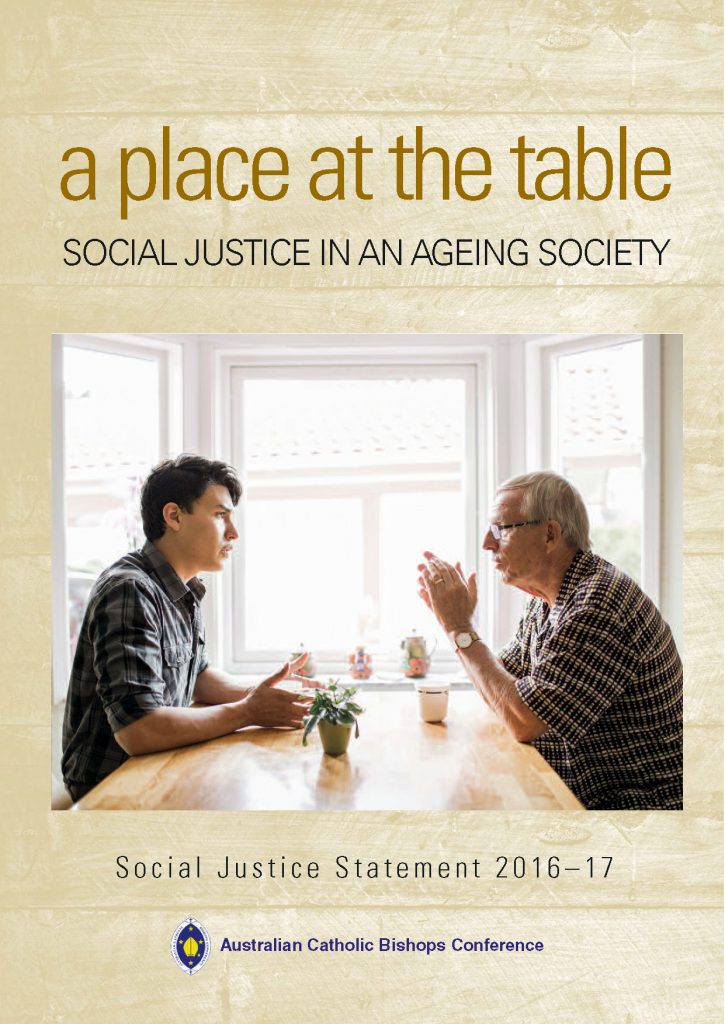
By Marco Ceccarelli
As more and more Australians live longer, the great ‘success story’ of our ageing population should be celebrated, and solidarity among all generations should be fostered, Bishop Antoine-Charbel Tarabay from the Australian Catholic Social Justice Council (ACBC) recently stated.
“Australia must protect older people who are most vulnerable to hardship and who are at risk of feeling they are a burden on society,” he said.
Bishop Tarabay was speaking at this week’s launch of the Australian Catholic Bishops’ 2016-2017 Social Justice Statement, entitled A Place at the Table: Social Justice in an Ageing Society.
The Statement highlights the significant contribution that older people continue to make to the life of the community.
There are today proportionally fewer children (under 15 years of age) in the Australian population and a proportionally larger increase in those aged 65 and older.
It is estimated that the number of Australians aged 65 and over will more than double by the middle of the century.
Driving this change have been low fertility rates, smaller families, increased life expectancy and a reduced number of people in the workforce compared to those reaching the traditional retirement age.
There is a risk, however, that a society ill-prepared for demographic change may assess these trends as an economic threat.
This raises concerns for the dignity and wellbeing of the most vulnerable. The elderly can be prone to abuse in institutional care and in our communities and, in a society that tends to value people only for what they contribute economically, they can be seen as burdensome or even dispensable.
In a statement issued by the ACBC earlier this year, President Archbishop Denis Hart expressed concern for the effects of “ageism” – the stereotyping of older people as being dependent, incapable or a burden on society.
“We are also concerned for those experiencing declining heath and approaching the end of their lives. The most vulnerable must be protected from isolation, ageism, abuse and any circumstance in which they may feel, or be made to feel, a burden on their families or society,” Archbishop Hart stated.
“This Social Justice Statement calls for communities of mercy and love, ministering to the vulnerable, building bonds between generations and ensuring everyone has a place at the table.”
National Executive Officer of the Australian Catholic Social Justice Council (ACSJC), John Ferguson, also warned against the impact of ageism at one of the organisation’s last briefings before the statement’s launch in September this year.
“Ageism can be seen in older people being disregarded in family consultations about treatment, or described as ‘blocking’ hospital beds, being too demanding over standards of care in residential settings, or as just another task on an overloaded community care roster. These attitudes can so easily develop into situations of elder abuse,” Mr Ferguson said.
“The Statement notes a recent Senate Community Affairs Inquiry that found residential care and aged care residents are ‘particularly vulnerable to violence, abuse and neglect due to their age, frailty and specific disabilities such as dementia’. The report also noted that elder financial abuse is a growing problem in the community,” he added.
In the Statement, the bishops also challenge what Pope Francis has labelled ‘throw-away’ culture that disposes of the elderly and views people only in terms of their utility.
They call for communities that foster solidarity among the generations and ensure older people have their rightful place at the table.
The 2016-2017 Social Justice Statement can be downloaded from the Australian Catholic Social Justice Council website www.socialjustice.catholic.org.au/